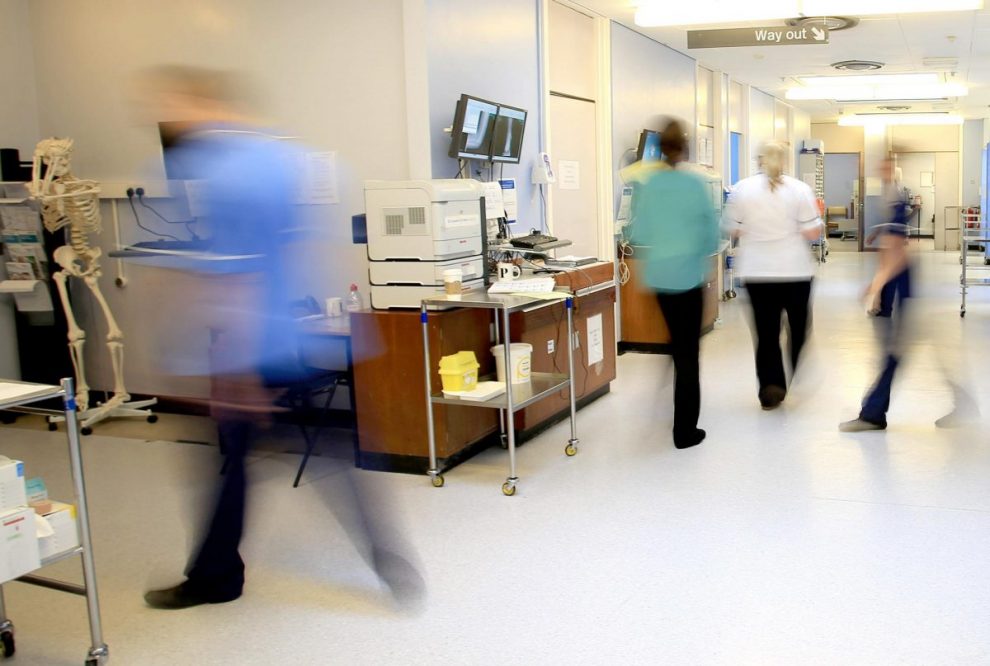A WOMAN spent almost a year in hospital, needlessly, because her council couldn’t find carers to support her at home, the BBC has highlighted.
For 11 months, Lily, 96, was stuck in Barry Hospital in the Vale of Glamorgan despite being passed fit to go home.
BBC Wales Investigates told Herald.Wales that they found that Lily’s experience is not unique.
The programme uncovers the true scale of the problem and how a lack of carers can impact the NHS.
Exclusive research suggests most councils had an average wait of over a month for care assessments last year, and most had examples of people waiting more than 6 months for the support they needed to be put in place.
The programme also reveals that at least 138 people died in Wales last year waiting for support.
And last year councils across the country scrambled to find the equivalent of more than 6,000 hours of care a week after companies handed contracts back, with most citing staffing issues.
Lily has lived on her own in south Wales for decades and is fiercely independent. She was admitted to hospital in February 2022 for an infection, but didn’t leave until May 2023.
Lily tells the programme: “I used to say ‘when can I go home’, and the social worker would say ‘we’re very short of staff at the moment’
“There’s an influx of people coming into the hospital all the time and they have to have beds and of course I was holding a bed up when really I should have been home a long time ago, except for the shortage of carers.”
The programme also follows carers Rebecca and Jessica on their rounds in the Vale of Glamorgan. One of their regular clients is retired police officer Nigel.
He waited three months to come home after being treated in hospital, again due to a lack of carers to allow him to return safely.
Nigel’s wife Karen tells the programme her husband’s mobility suffered as a result, and feels he ‘would still be walking a little bit’ if he’d been able to leave earlier.
She tells the programme: “It’s going to take a monumental shift. If a society doesn’t value health and social care above everything else, then it’s never going to improve.”
But economist Professor Gerald Holtham says the time to act was five years ago when he drew up a plan for the Welsh Government to fund social care with an increase in income tax – a plan he says will be even more expensive now.
And the head of Association of Directors of Social Services Cymru, Alwyn Jones, who represents social care bosses across Wales, warns it will take an effort “equivalent to the formation of the NHS” to fix the problems.
The Welsh Government said it was investing £70m this year to improve the pay of carers to £10.90 per hour and claimed the picture was improving.
Deputy Minister for Social Services, Julie Morgan MS, tells the programme: “Since April, over the last three months things have gradually started to improve and there are more care packages available more re-ablement workers available and the numbers who are staying in hospital who are medically fit and could go home are reducing.”
But how will the government afford to pay social care in future, amid claims tax will have to rise to cope with demand?
The Vale of Glamorgan Council has “apologised unreservedly” to Lily and Nigel but added that cases such as these were not unique due to a “national crisis in domiciliary care” across the UK.
It said this was compounded by the pandemic and an “acute shortage” of carers but claimed it had recruited more carers and its waiting list was now down to a ‘handful’ of cases.
Cardiff and Vale health board says the amount of care Lily needed played a part in how long she stayed in hospital and how long her wait was to return home.
It says Nigel was offered regular therapy while he was in hospital, but it added it understood both patients’ concerns about delays in returning home, and was working hard with councils to get people home as soon as possible.
BBC Wales Investigates: I Want to Go Home is on BBC One Wales and BBC iPlayer 8.00pm Monday, 31 July


















